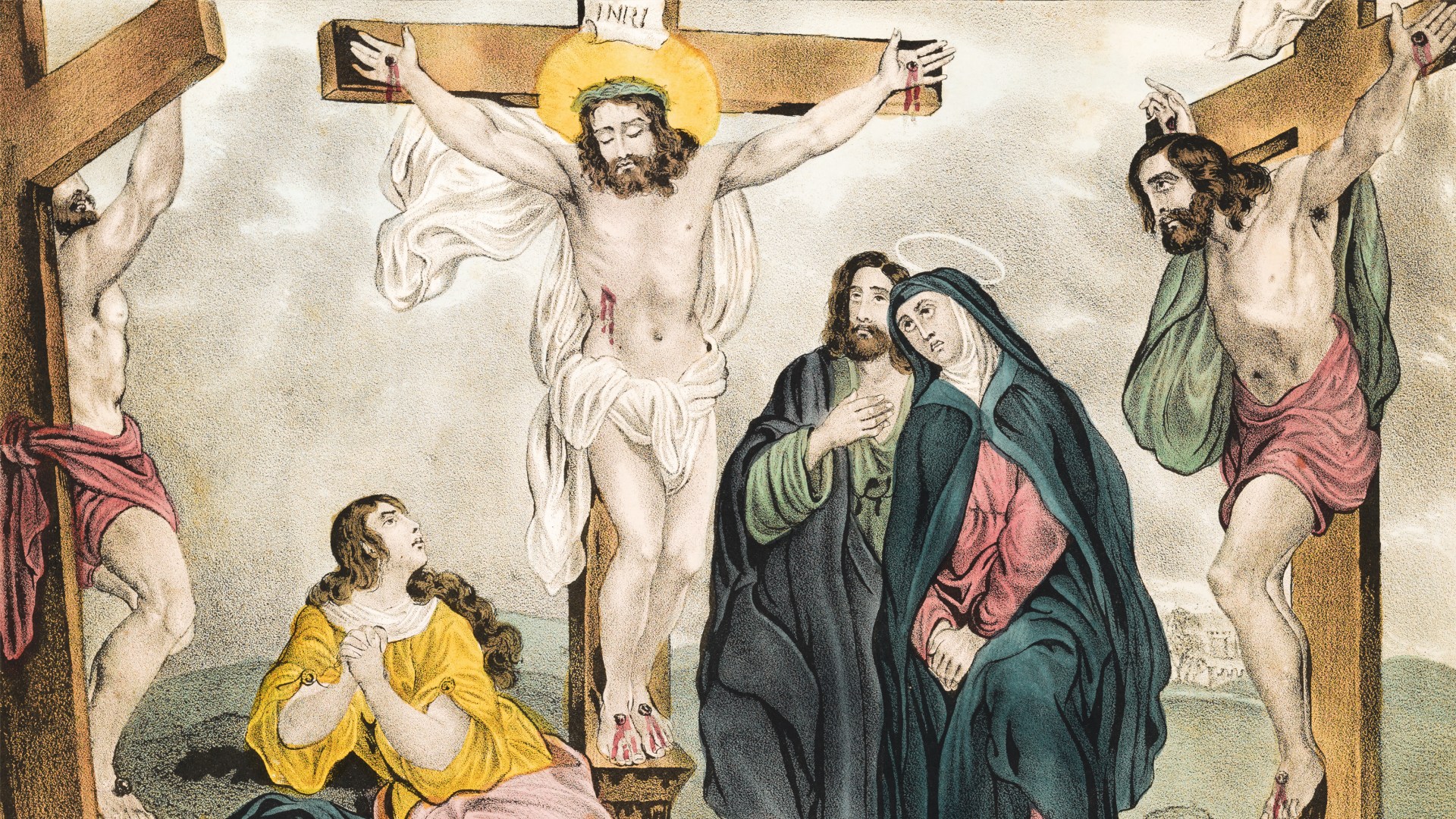One of the most famous lines in Scripture is also one of the most puzzling. We all know that Jesus, as he was dying, uttered the triumphant words “It is finished” (John 19:30). We quote it all the time. We celebrate it in our songs and our sermons. Some of us have the original Greek word, tetelestai, tattooed on our bodies. Yet if someone asked us to say exactly what it means—to define the “it” that is “finished”—we might have to stop and think for a while. Is Jesus saying that his life and mission are over? That the power of sin is broken? That the reign of death is ended? All of the above?
Theologically speaking, we could defend each interpretation. But it is interesting that John, the only evangelist who records the phrase, does not mention any of them. Instead, he connects it to several other themes by using a flurry of similar terms in one paragraph. In just three verses, he uses a word for fulfill or fill five times, with Jesus’ dying cry the climactic example.
If we over-translated it, we would get something like this: “After this, Jesus, knowing that all was now fulfilled, said (to fulfill the Scripture), ‘I thirst.’ A jar full of sour wine stood there, so they put a sponge full of the sour wine on a hyssop branch and held it to his mouth. When Jesus had received the sour wine, he said, ‘It is fulfilled,’ and he bowed his head and gave up his spirit” (19:28–30, ESV throughout, emphasis added). John, it seems, wants us to see Christ’s death not merely as a conclusion, but as a culmination.
Each of these five words is worth reflecting on, as they help us see the connections John is making. The first refers back to the previous paragraph: “After this, Jesus, knowing that all was now fulfilled . . .” After what? In this case, after ensuring that his mother was taken into the home of his friend (vv. 26–27). For John, this is a critical moment. There are five people at the foot of the cross, including the mother of Christ (Mary), the first witness of the Resurrection (Mary Magdalene), and John himself. Jesus’ death joins them together, uniting people from different families into one household. In some ways, this moment marks the start of the church. Mission accomplished.
The next example comes immediately after, when Jesus mentions his thirst, which is said to “fulfill the Scripture.” (He is probably referring to Psalm 69:21: “For my thirst they gave me sour wine to drink.”) Read in this light, Jesus’ cry of triumph does not just mean that the debt of sin is canceled. It means that the story of Scripture has reached its climax in the Cross. All the promises that God made to the prophets have come to pass, becoming yes and amen in Christ.
Next we come to the jar and sponge “full” of wine. What could these things possibly have to do with the fulfillment achieved by the Lord’s death? It sounds odd until we remember that the story of the cross began with Jesus’ insistence that he would “drink the cup that the Father has given me” (John 18:11). John has framed the entire cross story as one in which Jesus drains the wine cup of God’s judgment to the dregs, like the climactic Harry Potter scene with Dumbledore in the Horcrux cave, and now he ends with Jesus drinking a full jar of wine via a full sponge. The sacramental overtones of the wine and the hyssop branch (Ex. 12:22) make the connection even more emphatic.
So when we finally hear that famous word, tetelestai, we can make at least three connections. Jesus has “completed” the foundation of the church. He has “fulfilled” the promises of Scripture. He has “finished” the wine cup of God’s judgment against sin. Now, there is nothing left for him to do except bow his head and, in a final twist, “[give] up his spirit”—the same Spirit he has been promising throughout John’s gospel.
Dying words are famous for a reason. The Buddha, for example, summed up his teaching: “Work hard to gain your own salvation.” But Christ offers the exact opposite: the claim that salvation is achieved not by our work, but by his. God’s church is founded. God’s promises are fulfilled. God’s judgment is finished. God’s people are free.
Andrew Wilson is teaching pastor at King’s Church London and author of Spirit and Sacrament. Follow him on Twitter @AJWTheology.










